Introduction to Google Data Scientist
We all know that the Google Data Scientist Interview Process for budding is — in all its sense and meaning — difficult. The questions are challenging, Google-specific, and cover a wide range of topics in the google hiring process.
Following on from the traditional duties of statisticians, mathematicians, computer specialists, and data scientists, large volumes of data must be collected, analyzed, and interpreted. They do this through the use of cutting-edge technology such as machine learning and predictive analysis.
At large corporations, data scientists often collaborate with a group of technical specialists to mine big data, which is then utilized by organizations to anticipate consumer behavior and create new revenue sources.
Candidates for the position of google data scientist must be proficient in algorithm creation, mathematics, and statistics, and a certificate program in data science is preferred.
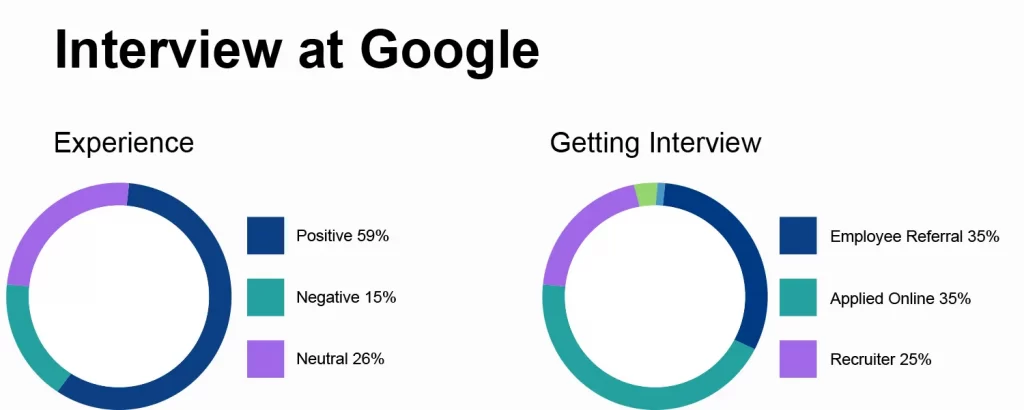
But there’s a piece of good news for you! With proper preparation, you can increase your chances of receiving a job offer at Google (or Google Cloud). We’ve evaluated several data scientist interview questions shared by genuine Google candidates to discover which themes may come up most frequently during a data science interview.
Want to grab that lucrative Google data scientist job? Want to know how to become a google data scientist? Keep reading and follow the below-mentioned handbook which covers everything from example questions and links to solutions for various interview stages, along with a preparation plan for you.
Here’s a rundown of what we’ll go over:
- Timeline for Google Data Scientist Interview Process
- Google Data Scientist Interview Questions
- Statistics and Machine Learning
- Coding
- Behavioral
- Product Sense
- Skills needed, Requirements, and Expected Salary of a Google Data Scientist
Timeline for Google Data Scientist Interview Process
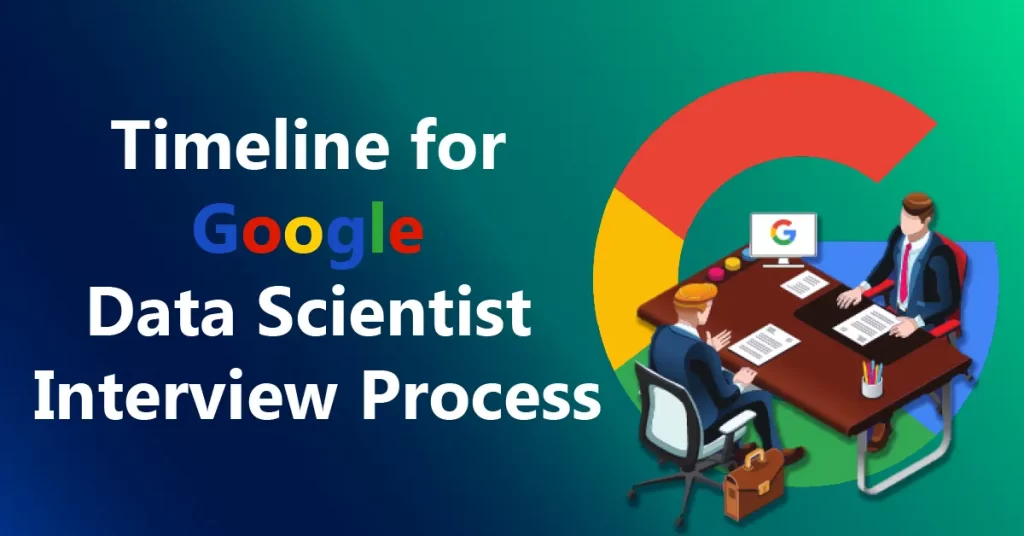
It can usually take anywhere from three to six weeks and involves the steps outlined below. If you’re interviewing at Google Cloud Platform, the process will be similar.
- Applications and Recommendations
- Recruiter screening (30 minutes)
- Technical screening (45-60 minutes)
- In-person interviews (5 interviews, 45 min each)
The exact method varies slightly depending on the position, as Google may hire data scientists to be placed in research, product analysis, or other areas. At the start of the process, your recruiter will provide you with information outlining the types of interviews you can expect.
Step one is to apply. The application introduction portion will be brief because this guide focuses mostly on practice questions. It should be noted that the Google data scientist function was once dubbed “quantitative analyst,” and some job advertisements may still use that phrase.
The online application involves a résumé and basic applicant information, as well as a cover letter, which is optional. There is no assurance that your cover letter will be evaluated, according to Google. Make sure to showcase your leadership experience in your CV, including precise statistics and success indicators for each post, and keep it to one page. Use Google’s recruiting guidance to double-check.
After applying online for the Google Data Scientist position, you will receive an email with a pre-screen questionnaire with introductory technical questions before proceeding to the full technical screen. This preliminary questionnaire will be simple if you are prepared for the complete technical screening.
Applicants who have received references or who have been approached personally by recruiters via LinkedIn may be eligible to avoid the pre-screen online testing.
Following that, many, but not all, applicants may get a call from HR. For you, this call is going to be an opportunity to learn more about the upcoming interview process and how to prepare. Prepare to answer questions about your professional background and why you want to work for Google. Candidates are rarely asked coding or statistics questions at this stage because it is followed by a technical screen.
However, some candidates report going straight to the technical page after submitting their initial application. In this situation, the technical screening will include a few background questions that would normally be asked during the recruiting call.
Make sure to inquire from your recruiter what kind of call you’ll be getting ahead of time so you can be prepared.
Eventually, after the application and pre-screen questions, you will be scheduled for a video interview with a hiring manager, recruiter, or one of Google’s data scientists. This will be done over Google Hangouts. In very unusual situations, you may be subjected to two technical screenings prior to the onsite round. Check in with your recruiter if you’re unsure what to expect.
We’ll go over the questions in greater detail later in this article, but in general, expect a few background questions, followed by statistical questions and coding. You’ll be coding in a language of your choice on a shared page in real-time.
Google values clear communication, so practice talking through your arguments simply and eloquently as you would work with any prestigious organization.
The onsite element of the Google data scientist interview process is the final and most difficult stage. Typically, this entails five rounds of 45-minute interviews, with time for lunch in the Google cafeteria in between. Apart from lunch, you may have little to no breaks between interviews.
You should be prepared to answer a variety of questions during the onsite interviews, with a focus on applied statistics in business case scenarios. Expect more challenging questions than those presented during the technical screen.
There are four major sorts of questions that you will have to answer. We’ll provide you with practice examples later, but here’s a quick rundown:
- Statistics and machine learning questions, where you’ll be assessed on general statistical principles and definitions, as well as probability and applied machine learning.
- Coding questions, in which you will demonstrate both technical skills and statistical problem solving using SQL queries and programming in the language of your choice.
- Behavioral questions, in which Google will assess your cultural fit based on your prior experiences and current motivations.
- Product sense questions, require you to use your statistics and coding skills to test and drive business and product decisions.
After you’ve finished the onsite rounds of interviews for the position of Google Data Scientist, you should get feedback within a few weeks. If you’re interested to find more insight on this, you can visit Google’s own guide about how they go about their hiring process and interview tips.
Here are some Google Data Scientist Job Links for your reference:
- Data Scientist, Operations Data Science
- Data Scientist, Google Cloud Support
- Data Scientist, Google Cloud Support
- Data Scientist, Core Compute Analytics
- Data Scientist, Marketing, Devices and Services
- Data Scientist, Commerce
Video Link for a day in the life of a Google Data Scientist:
Google Data Scientist Interview Questions
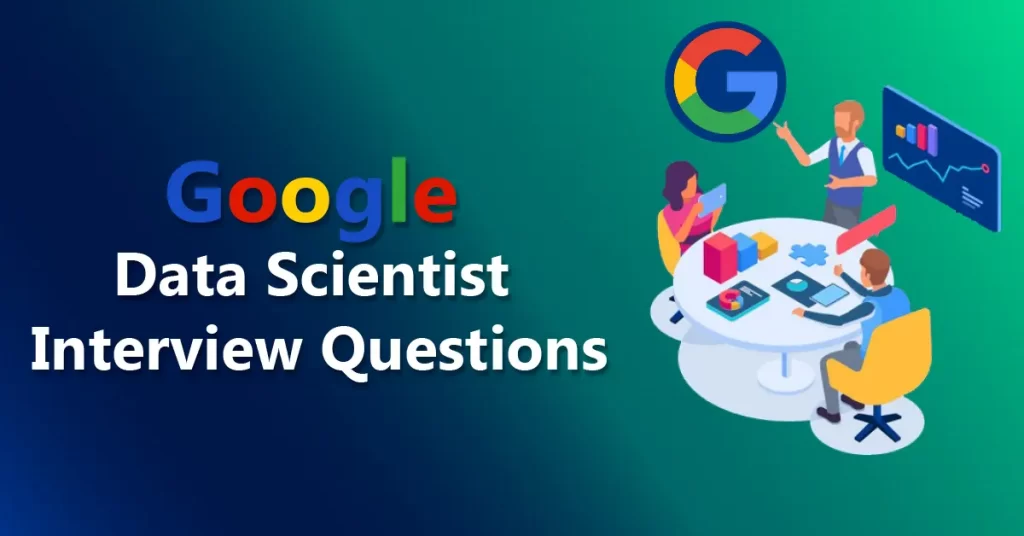
Let’s go through the four main types of questions you’ll be asked during your Google data scientist interview:
- Machine Learning and Statistics (46% of reported questions)
- Coding (32%)
- Behavioral (12%)
- Product Awareness (9%)
Google Data Scientist Statistics & Machine Learning Questions
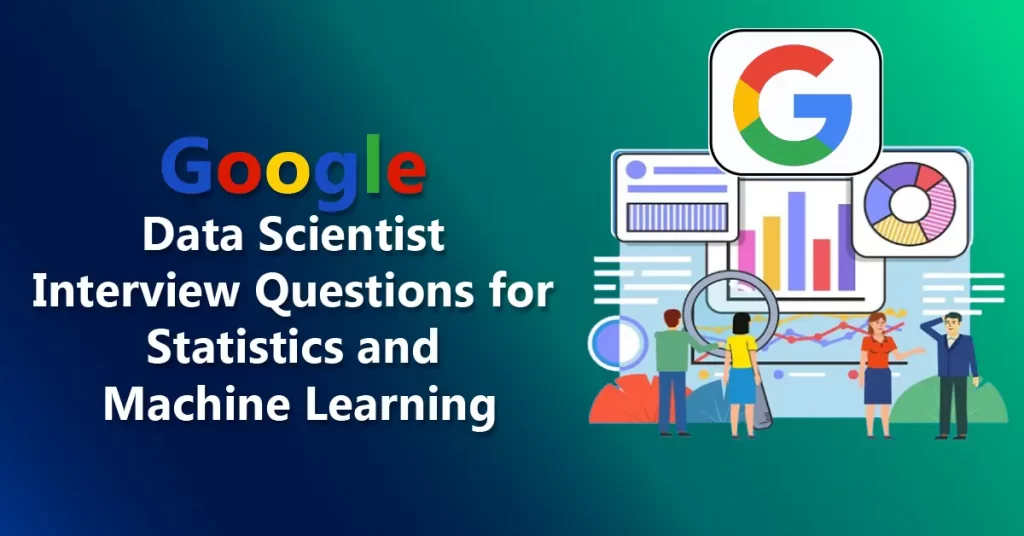
Google Data scientists must extract relevant insights from enormous, sometimes difficult databases. As a result, a solid understanding of statistics is required. General statistics and statistical probability are the most frequently asked questions at all levels of the interview process. Spend extra time studying this section.
Examine fundamental statistics and how to provide simple explanations of statistical concepts, with a focus on probability. Previously discussed broad issues include p-values, MLE, confidence intervals, and the Bayes theorem.
In addition to these broad subjects, you’ll find detailed questions to answer below.
Because a Google data scientist must create algorithms that improve and remain accurate over time, your interviewer will also ask machine learning-specific questions. Regression models, feature selection, and recurrent neural networks are some of the general issues that have been discussed previously.
Let’s look at some sample data science interview questions:
General Statistics
- When would you prefer mean to median?
- The margin of error is 3, for sample size n. How many more samples are we going to need to get the margin of error down to 0.3?
- In linear regression, what is the error assumption made?
- How could you conduct an A/B test based on data from two product campaigns if one product saw a 3% increase?
Statistical Probability
- I have a deck of cards and choose one at random. What are the chances you got it right?
- Explain a probability distribution that is not normal and how to apply that.
- What is the probability of 2X > Y given uniform distributions X and Y with mean 0 and standard deviation 1 for both?
- An elevator holds four people, and a building has four floors. What are the chances that each person will exit on a different floor?
- Fair up an unfair coin.
Machine Learning
- How would you assess the model’s performance if the labels are known in a clustering project?
- What’s the point of feature selection?
- What effect does a high correlation between two predictors have on the logistic regression coefficients? What are the coefficients’ confidence intervals?
- What’s the difference between EM and K-mean?
- How can you tell if a Gaussian mixture model is appropriate?
Google Data Scientist Interview Questions about Coding

A Google data scientist uses the company’s massive datasets to analyze and solves real-world problems. There are several Google interview questions to put you through statistical coding, SQL, and data analysis.
Because statistical issues are frequently asked, be prepared to build functions that answer statistical analysis and probability difficulties. The majority of candidates report using Python to code, although you are free to use your own programming language.
SQL queries are the second most common technical topic, followed by a combination of data structures and modeling. Google is seeking applicants that understand how to use and manage critical data. As a result, practice performing SQL queries quickly and correctly.
Let’s get started with the interview questions listed below:
Statistical Coding Questions
- Create a function that will generate N samples from a normal distribution and plot the histogram.
- If you only have access to a random number generator, write code to generate iid draws from distribution X.
- Coding in R, multiply all a[i,j] in a i rows j columns dataset.
- Return the optimal sequence for the highest probability given a set of characters, a set of prior probabilities for each character, and a matrix of probabilities for each character combination.
SQL
- From a list of order histories, how would you find the top five most popular items?
- Could you please explain how SQL works?
- How would you compare the first three to the last three if you only had three columns of data?
- How do you find the median in a data set for a particular column of numbers?
Other: e.g. Data Structures, Modeling
- What are some effective methods for reducing a data set’s dimensionality?
- What is the best way to invert a binary tree?
- How do you program the simulation model to calculate the chances of a given scenario?
Google Behavioral Interview Questions
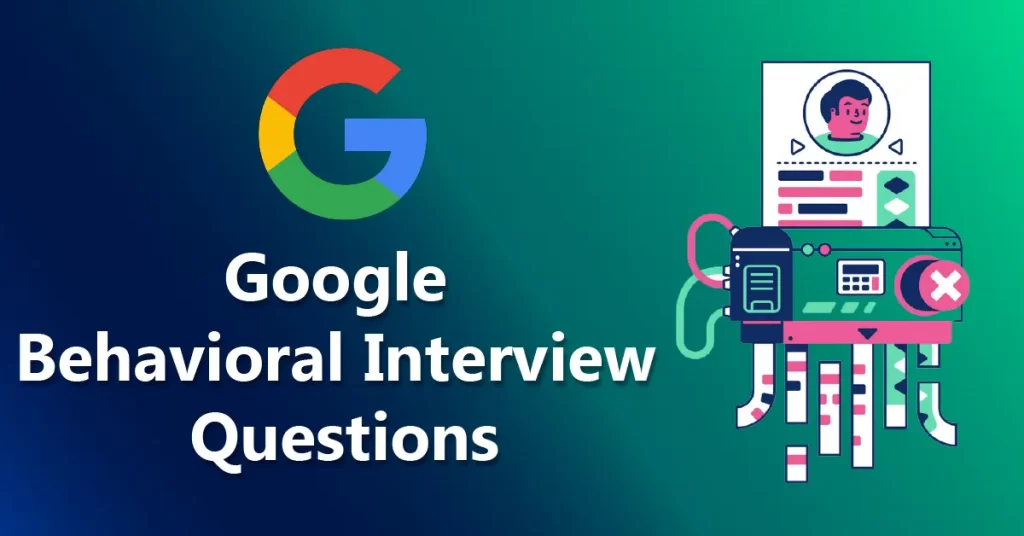
In addition to the question types mentioned above, you can expect to be asked behavioral or “resume” questions regarding your previous work experience and motivation for applying to Google. Your interviewers are looking for you to demonstrate your “Googleyness” as well as your ability to speak clearly.
If you’re applying directly to a job posting, be smart by aligning your responses to behavioral questions with the key qualifications given in the job description. Below are the actual behavioral interview questions reported by data scientist applicants, as well as a few extras reported by Google software engineer candidates.
Use the sample questions below to practice:
- Why
Google?
Before hiring you, businesses look at two major factors. First, they determine whether you have the necessary abilities for the position. Second, they assess whether you are motivated enough to be totally invested in your career on a daily basis. This second aspect is tested with the interview question “Why work here?”
- When multitasking, how do you keep track of your priorities?
Most giant companies or brands, including Google, want to make sure that their employees have a good understanding of planning and prioritizing their work so less time is spent on trivial matters and actual productivity can thrive.
- Give an example of a previous project on which you worked.
Interviewers at Google ask this question to hire data scientists so they can learn about your interests, areas of expertise, and whether you take pride in your work. How you characterize your favorite project, for example, is almost as significant as the project itself.
- What is your career trajectory?
When you’re asked in the google interview, “What is your career path?” the interviewer is trying to measure your long-term commitment to the organization as a Google Data Scientist. While applying for a new job is an important step for you, it is also a significant investment for the firm that is recruiting.
- Do you prefer small or large groups to work in?
Google asks this question because some jobs require employees to work in groups on a daily basis, and others require employees to work alone. Interviewers are genuinely interested in learning about your preferred work environment.
- When you disagree with your boss, how do you fight back?
The interviewer is searching for the following qualities in your response: legitimacy, emotional maturity, loyalty, and responsibility. Keep your response brief and to the point, as you’d rather spend your interview time on the positives.
- What are the most valuable skills you bring to our organization?
Employers at Google ask this type of interview question to check if you’re confident in your talents, to learn about your top strengths, and to hear what you’d be able to contribute if employed. Google Data Scientists are known to make valuable contributions to their profiles.
- Which Google product is your favorite, and why?
Interviewers at Google ask this question to assess your understanding of product design, your ability to deliver constructive criticism, and your knowledge of a specific product.
- Describe a time when you had to manage a late project.
Questions like this are intended to assist an interviewer to get to know you better, but they also provide a unique opportunity for you to stand out from the crowd. You can emphasize the good aspects of each event and demonstrate that you have what it takes to think differently and be prepared.
- Tell me about a time when you made a crucial decision based on data.
The interviewer is curious about your critical thinking abilities. They would also like to see that you can make sound decisions using logic. Your response should demonstrate your ability and confidence in independent thinking and decision-making. A Google Data Scientist not only works on crunching numbers but also has to have skills related to decision making.
Skills needed, Requirements, & Expected Salary
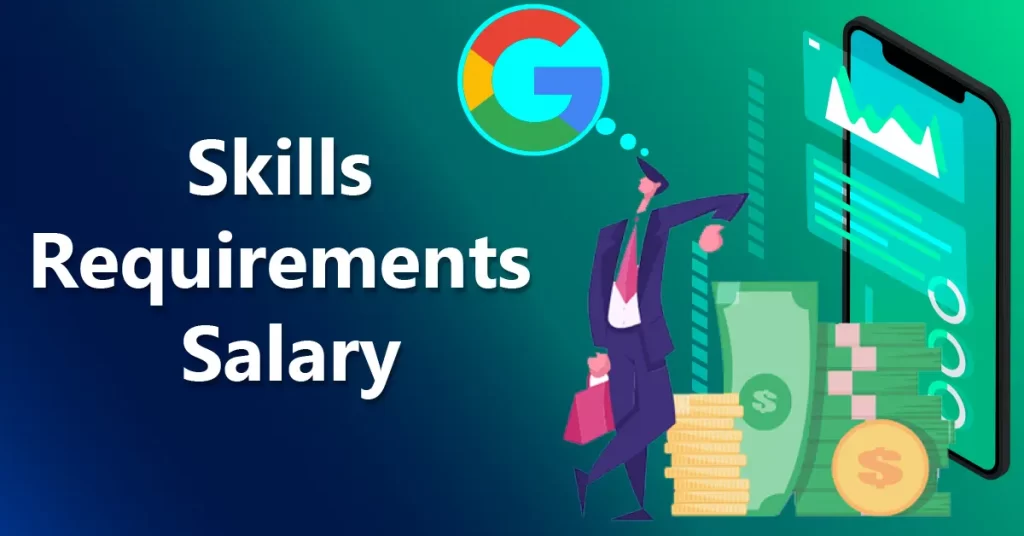
Skills Required for a Data Scientist:
- Statistics and Probability
Machine Learning begins with statistics and then progresses. It is necessary to understand descriptive statistics concepts such as mean, median, mode, variance, and standard deviation. Then there’s sample and population, CLT, skewness and kurtosis, inferential statistics like hypothesis testing and confidence intervals, and so on.
- Programming knowledge
To name a few, Python, R, and Julia each have their own set of advantages and disadvantages. R is a statistical analysis and visualization language, whereas Python is a general-purpose programming language with multiple data science libraries and rapid prototyping. Julia combines the best of both worlds while also being faster.
- Data Manipulation and Analysis
Data analysis is the process of fully comprehending and interpreting the data. This is usually the point at which you gain a lot of insight into the data. What are the average weekly sales, for example, and which products are the most popular?
Data analysis is typically performed in Excel, SQL, or Python using Pandas, and is the most important task of an analytics professional, whereas data analysis is only one step in the machine learning process.
- Deep Learning
Data analysis is the process in which you learn everything about the data and get a sense of how it feels. This is usually the point at which you gain a lot of knowledge about the data. For example, what are the typical weekly sales, which products are the most popular, and so on?
Data analysis is often performed in Excel, SQL, or Python with Pandas, and is the most significant duty of an analytics expert, but data analysis is only one stage in the machine learning process.
An ideal Google Data Scientist would be well aware and versed in the aforementioned Skills. So, if you want to become a Google Data Scientist, then your area of focus should be to churn and practice more on these skills.
Requirements:
Minimum qualifications:
- Master’s degree in Operations Research, Industrial Engineering, Statistics, related field, or equivalent practical experience.
- 2 years of relevant work experience (e.g., as a data scientist) or equivalent. Analytical engagements outside class work while at school can be included.
- Experience with statistical software (e.g., R, Python) and database languages (e.g., SQL)
Preferred qualifications:
- Ph.D. in Operations Research, Industrial Engineering, Statistics, or related field.
- 4 years of relevant work experience (e.g., as a data scientist), including experience applying advanced analytics to planning and infrastructure problems.
- Experience designing and building statistical forecasting models.
- Experience designing and building machine learning models.
- Excellent problem-framing, problem-solving, and project management skills.
- Experience designing and building optimization models.
Bear in mind that these data scientist job position requirements may not always be the same and keep updating or changing based on Google’s vision, approach, and the team scalability that they’re looking to hire for.
Google Data Scientist Salary India – The Expectations
Average Annual Salary | Estimated Take Home Salary
₹34,72,000 per annum | ₹2,10,234 – ₹2,18,603 per month
167% more than the average Data Scientist Salary in Internet Companies. The average Google Data Scientist in India is ₹34.7 Lakhs per year for employees with years of experience. Data Scientist salary at Google ranges from ₹19.6 Lakhs to ₹52 Lakhs per year. Salary estimates are based on salaries received from various employees of Google including several Google Data Scientist.
The more popular location for Data Scientists is in Bangalore. Data Scientist Salary bangalore looks something like this:
Data Scientist salary Bangalore ranges between ₹ 4.7 Lakhs to ₹ 24.1 Lakhs with an average annual salary of ₹ 11.0 Lakhs. Salary estimates are based on 4.3k salaries received from Data Scientists.
Conclusion
It’s an exciting time to be a Google data scientist in this decade. There will be many advances in the future. Many peopl
e aspire to work as a Google Data Scientist because it is a wonderful opportunity to make a real impact on hundreds of millions of people in real life, work with an excellent organization, and receive incredible advantages such as a large paycheck.
The main thing Google looks for in Data Scientists is that they will be a good match for the position. Why do you want to work as a Google Data Scientist? It’s not enough if it’s only for the brand name or because you don’t know what else to do. You are not a good fit if you have to lie or exaggerate.
We hope you don’t get this wrong, but if you don’t get the job, it’s usually for the best.
But you can be certain: if you have the necessary talents, preparation, and desire, you’ve got a one-way ticket to one of the top jobs in the world as long as you nail the fundamentals, showcase your skills effectively through the resume, and interview process, and demonstrate how wonderful a culture fit you are.
In this blog, we’ve discussed what a Google Data Scientist Interview looks like, the google data scientist interview process and google data scientist preparation. You will also find Google Data Scientist Interview questions for freshers and experienced. Further, we took a look at Data Scientist Salary in Google.
Frequently Asked Questions
1. Does Google Hire Data Scientists?
Google works with a lot of data to build their products and services, thus they need a lot of data centers and a lot of data workers. As a result, the position of Google Data Scientist is one of the few career paths that Google actually cherishes. There are a number of data science roles that are critical to Google’s operations.
Data scientists are hired by Google to support services and products that rely on user data, such as search results, targeted adverts, and traffic data for maps. A Google Data Scientist creates the algorithms that enable these services and thinks of new ways to use data.
2. What does a Google data scientist do?
As a Google Data Scientist. you will assess and improve Google’s products. You’ll work on a variety of problems with a multi-disciplinary team of engineers and analysts. With an understanding of end-user behavior, this individual will apply scientific rigor and statistical approaches to the difficulties of product creation, development, and improvement.
Google Data Scientists work on vast scalability and storage solutions, large-scale apps, and totally new platforms for developers all over the world, in addition to revolutionizing search.
3. Can I become a Google Data Scientist?
Yes, you can indeed become a Google Data Scientist if you focus on knowing your stats, get real-world experience, spend time coding and be passionate about the world of data science.
4. Does a Google data scientist require coding?
Data science necessitates coding. To explore, clean, analyze, and present data, data scientists must employ coding languages. Data science Machine learning employs coding languages such as Python and R. However, the need for coding differs by job function and industry in data science.
Coding is a typical requirement in data science, however, the amount and scope of coding vary greatly depending on a variety of circumstances. In data science, data is frequently chaotic and disorganized. You’ll need a very flexible technique to put such unclean and muddy data into the structure you require.
You’ll probably spend a long time tidying it up in Excel without any coding (which is tedious!). Packages and libraries from standard data science programming languages, on the other hand, can significantly improve your productivity thanks to the power of coding and programming.
5. How much does a Google Data Scientist make?
The typical metric in Google Data Scientist salary in India is ₹13,61,732 per year. Google Data Scientist salaries can range from ₹2,80,812 to ₹73,35,989 per year.
This estimate is based upon 45 Google Data Scientist salaries provided by the employees or estimated based upon statistical methods. When factoring in bonuses and additional compensation, a Google Data Scientist can expect to make an average total pay of 14,17,098 per year.
6. How much does a senior Google Data Scientist make?
The salary range for a Senior Google Data Scientist is between 30 and 100 lakhs per year. Salary estimates are based on 22 salaries submitted by Google employees.
7. Is it hard getting a job at Google?
Google is a top employer in the globe, with hundreds of resumes for each position, allowing them to be incredibly picky in their recruiting. According to one of the most often recognized surveys, Google receives over 2 million resumes each year and offers a position to one out of every 130 applicants.
Harvard University, for example, takes 1 out of every 14 applications for their freshman class. Getting into Google is ten times more difficult than getting into Harvard. Nonetheless, Google is always hiring, so if you think you have what it takes, apply. Research the company and the function you wish to apply for closely, as one of Google’s screening criteria is whether you really grasp Google’s business model and the context of the role.
Determine whether Google is a good fit for you in terms of culture, career goals, and corporate objectives. Before applying, try to become a known entity to them, and use any networking resources you have to acquire an informational interview or to be referred in.
8. Does Google have data science internships?
Yes, Google offers data science internships. A data science intern’s tasks will vary depending on the team they join and the project they’ve been assigned. Google Data science interns are expected to be knowledgeable in programming languages such as SQL, Java, C++, or MATLAB, as well as to have a background or be studying Statistics, Applied Mathematics, Computer Science, or a related technical discipline.
It is also advantageous to have prior expertise or knowledge of data collection, complicated data cleansing, business analytics, gleaning insights from big data, and an interest in working on Google products.
9. What skills do I need to be a data scientist at Google?
There are several abilities required to become a Google Data Scientist:
- Database and programming capabilities
- Data modeling, warehouse, and unstructured data skills
- Statistical Tool Knowledge
- Mathematical abilities
- Knowledge of Visualization Tools
- Storytelling Ability
Data analysis, product insight, SQL coding, and a lot of engagement with business and key stakeholders are all required skills for the Facebook Data Scientist position. The Facebook data science role is similar to a product analyst and analytics employment at many other businesses, with a focus on business rather than engineering.
The role of a data scientist at Amazon is determined by the team. Amazon is a massive business with numerous teams working on various products and services. AWS (Amazon Web Services), Alexa, the Supply Chain Optimization Technologies (SCOT) forecasting team, the NASCO Team (North America Supply Chain Organization), the Middle Mile Planning Research and Optimization Science (mmPROS) team, and others are among these groups.
The job description for a data scientist at Microsoft varies widely, depending on the team you interview with. Each Microsoft data science position is unique, ranging from analytical to machine learning-intensive responsibilities. Microsoft has various teams working on speech and language, artificial intelligence, Azure machine learning infrastructure, a data science consulting for cloud computing, and much more.
11. Data Scientist vs Data Analyst: What is better?
Data Analyst and Data Scientist are positions that are in high demand. Many students and working professionals aspire to work in these fields. A Data Analyst position is better suited for those looking to begin a career in analytics. A Data Scientist position is recommended for those who want to create advanced machine learning models and use deep learning techniques to aid in the performance of human tasks.





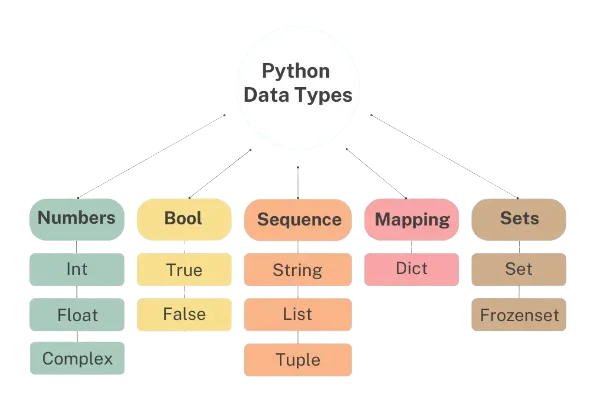
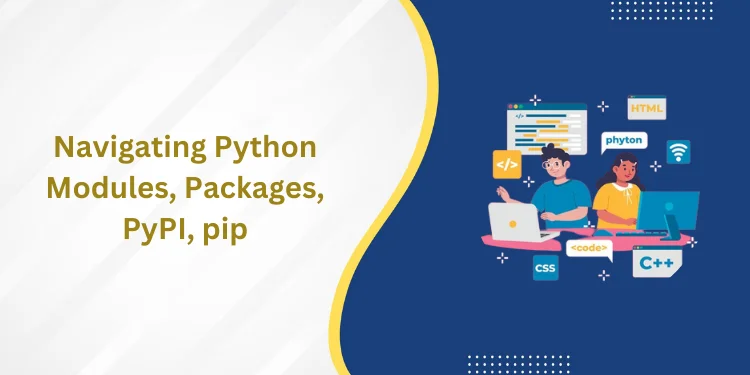

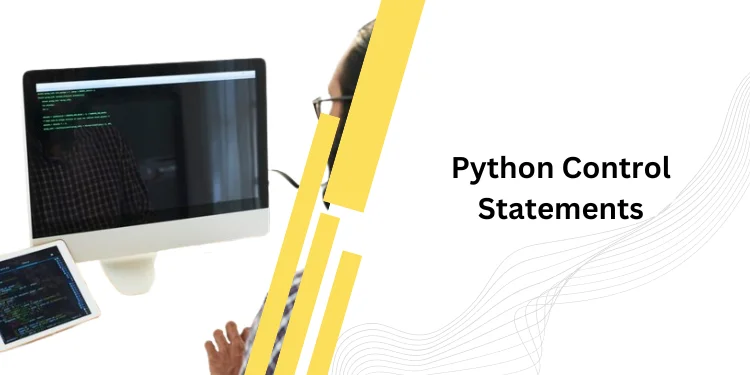
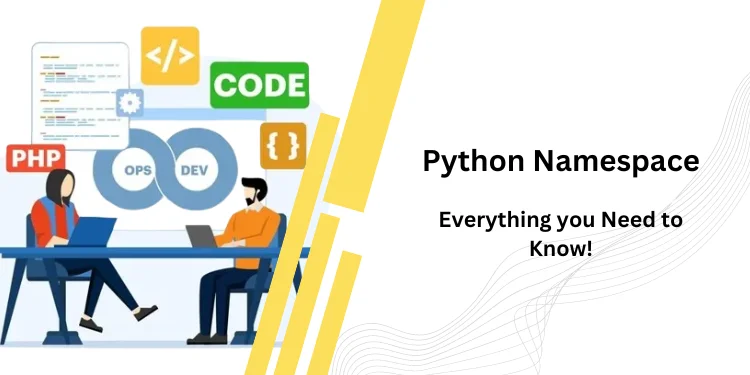
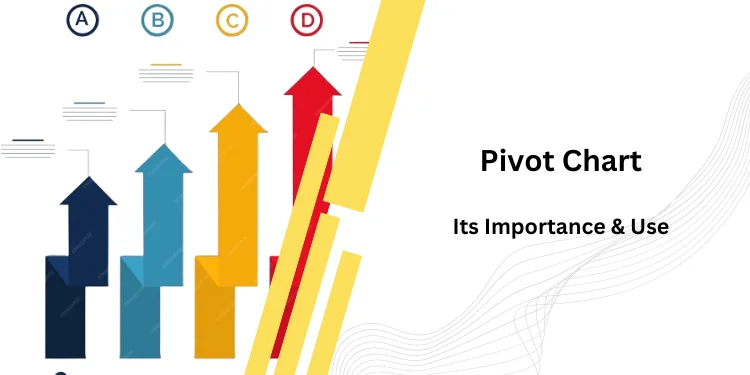
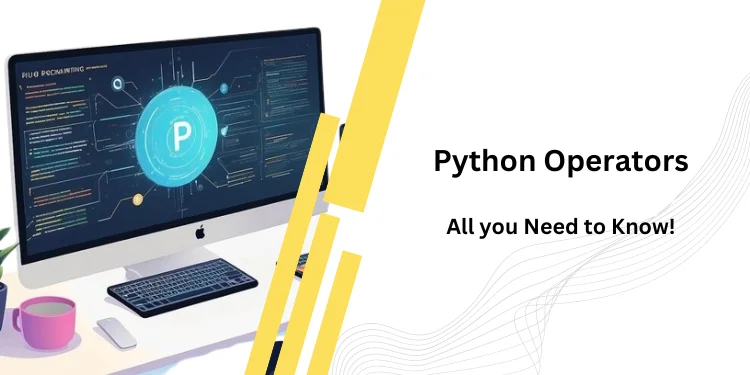


3 responses to “How To Become a Google Data Scientist: 3 Important Stages | DataTrained”
[…] Reading: How to become a Google Data Scientist, How to become a Data Scientist at […]
[…] Related Reading: How to become a Google Data Scientist […]
[…] Related Reading: How to become a Google Data Scientist […]